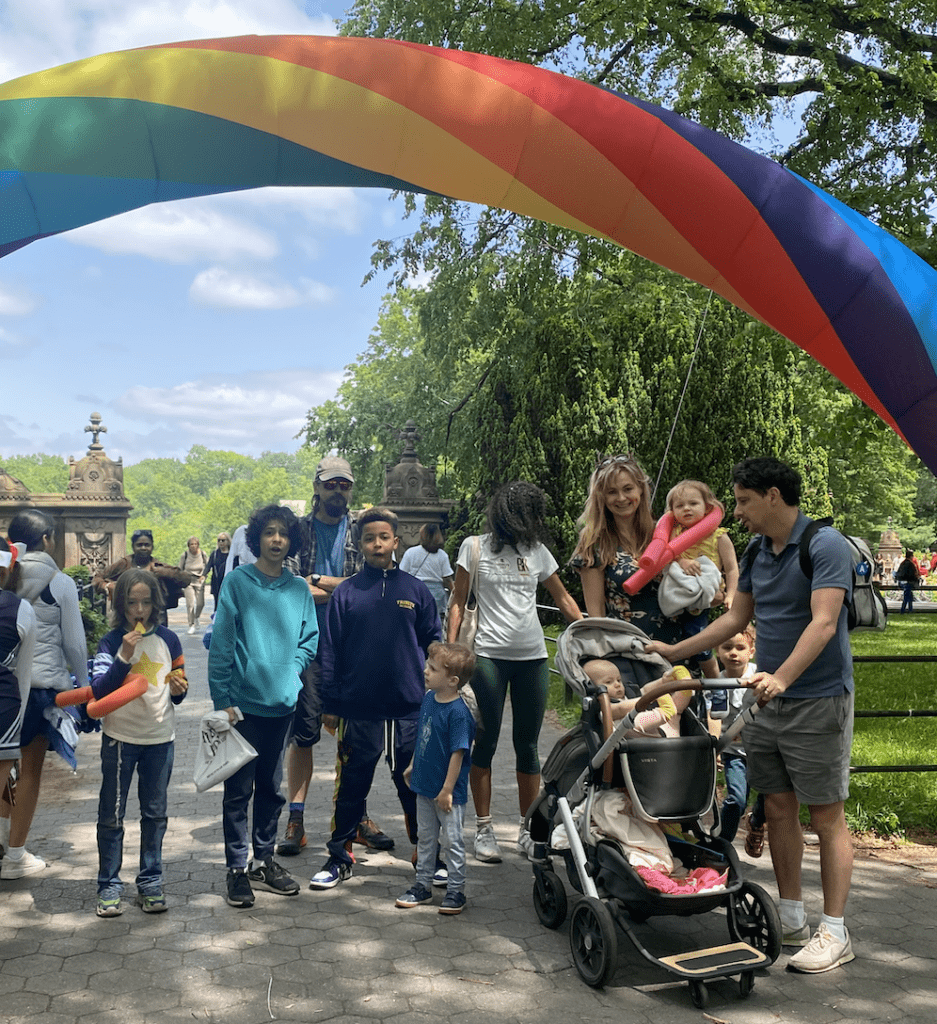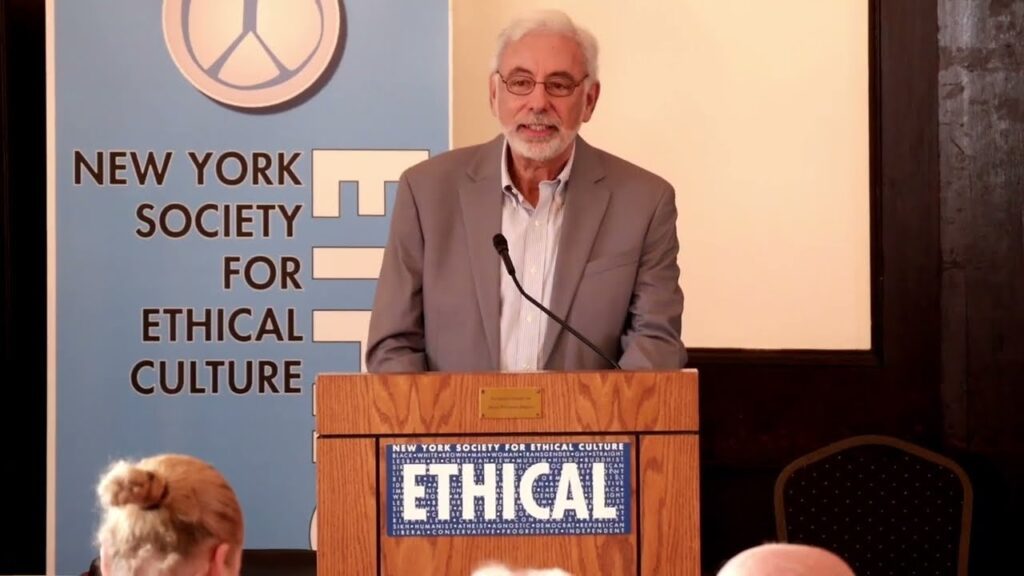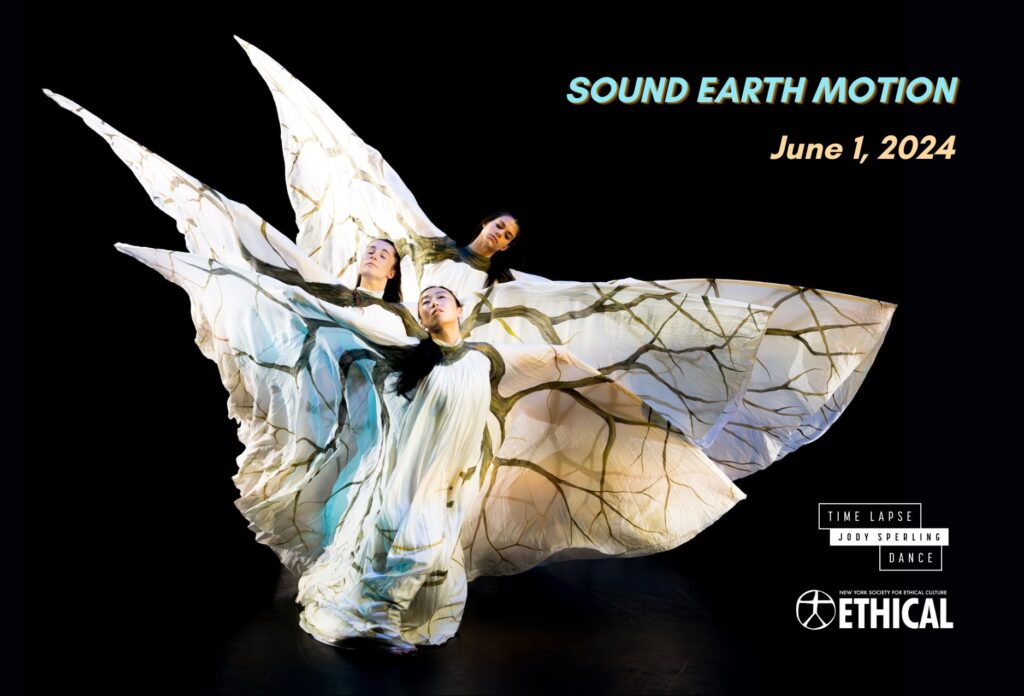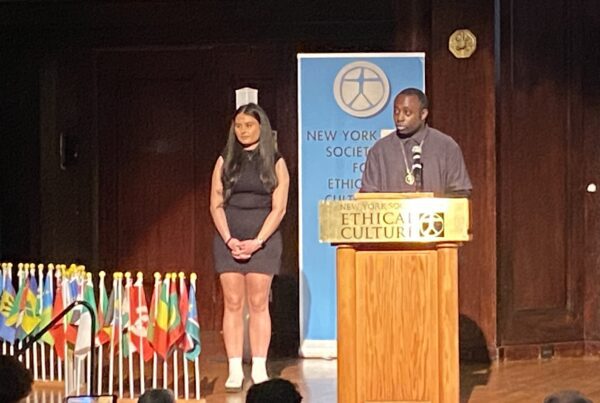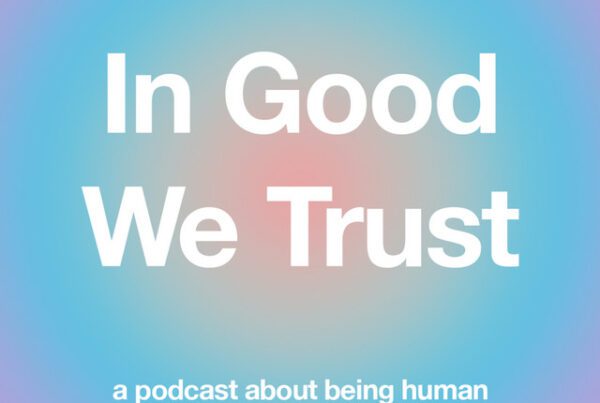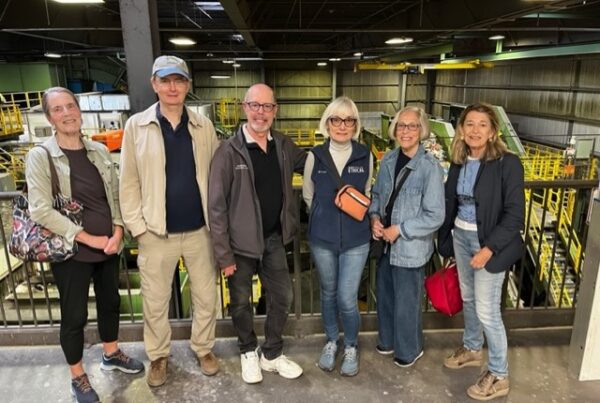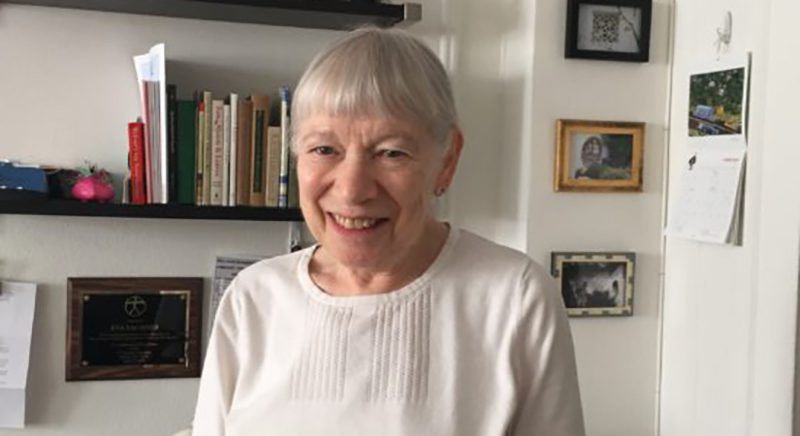
Kindertransport survivor and Society Member Eva Yachnes joined us for our Sunday Platform on March 29 to share her story as a former refugee separated from her family to escape Nazism, describe the lifelong effects the experience had on her, and examine the similarities she sees between her experience and that of those families being torn apart by the Trump administration at our southern border:
With the rise of Nazism, Eva Yachnes’ mother and father were forced to flee the family home in Austria. Her mother was able to escape to England and find work, while her father went illegally to France. Eva, meanwhile, was left alone with her grandmother in Vienna. With great effort, her grandmother was able to get Eva onto a Kindertransport, which began Eva’s long journey, first to England, and then, finally, to the United States. Eva will speak about her experience while drawing parallels between it and that of the children today being separated from their parents at the US-Mexican border by the Trump administration.
Below are her full remarks.

CHILD SEPARATION: My Personal Experience
Eva Yachnes
My talk this morning concerns a little-known piece of World War II history that is part of my own personal history. Unfortunately, my story has assumed new relevance because of the Trump administration’s policy of separating children from their parents as a means of deterring illegal immigration to the United States.
I was born in Vienna, Austria. One night in December when I was six-years old, my grandmother took me to a railroad station where, in spite of my hysterical screams and attempts to cling to her skirt, she handed me over to a woman who took me away. I joined a group of children, each wearing a number on a tag around the neck, each carrying a small suitcase tagged with the same number and a paper bag of food for the journey. Our destination was Great Britain and safety from the Nazi persecution of Jews.
I didn’t find out until much later that I had been part of what became known as the Kindertransports, an effort that saved nearly 10,000 children. One of the reasons that the British government acted to allow in the children was the failure of the Evian Conference to come to any kind of agreement to help the Jews of Germany and Austria against the increasing violence of the Nazis. The other cause of action was Kristallnacht, the night of broken glass. On the night of November 9 to November 10, 1938 the Nazis smashed the windows of Jewish-owned shops and set synagogues on fire. A number of Jews were also arrested and a few were killed.
In response to the growing evidence of what was happening in Germany, on the evening of November 21, 1938 the British Parliament held a debate on how to help the Jews. Several suggestions were put forward. The argument against admitting adults was a feared backlash against them for taking jobs away from British citizens, since the country had not fully recovered from the Great Depression. The decision was therefore made that children under the age of seventeen would be admitted if they had sponsors.
My parents were well aware of what was going on in Germany, so they made plans to flee as soon as Hitler began to talk about annexing Austria. My mother was the first to leave; she had gotten a job as a cook in a wealthy English household. Because she was so blond and blue-eyed, my father urged her to get on the short Aryan line to have her papers processed, rather than the much longer Jewish line. He reasoned that these were Austrian officials who wouldn’t check her papers too thoroughly. If they had been Germans they would have asked to see her birth certificate which said that she had been born into the Jewish community of Vienna.
In those days English homes wouldn’t have allowed a domestic to have a child with her, so she had to leave me behind. My father and a group of his friends went illegally over the Austrian border into Switzerland, then over the Swiss border to France. He wanted to take me with him, but quickly realized that a small child wouldn’t be able to climb the mountains between Austria and Switzerland. As it happened, they crossed at night and were shot at. My presence would only have hindered the group, perhaps causing them all to be caught.
The result was that I was left behind with my maternal grandmother while both my parents tried frantically to get me out. I don’t know how my grandmother found out about the Kindertransports, but she managed to get me on one of the first ones to leave Vienna. So it was that, in spite of my screams, I left Austria on the night of December 24, 1938. My grandmother had sewn a label with my mother’s address into my coat, and told me what it said. She assured me that if there were any problem I need only show the label to an adult and I would be reunited with my mother.
My mother always said that my grandmother refused to leave Austria. I don’t know if she didn’t want to go, or if she couldn’t find a way to leave. She kept up a correspondence with my mother until England went to war with Germany, even sending some Austrian children’s books to me. After the war and the division of Austria into three allied military zones records were incomplete and my mother was unable to find out her mother’s fate. I’m glad that she never knew that my grandmother, who had saved my life, perished in Belzec Sobibor, one of the worst extermination camps. She was sixty when she died.
The train I was on left late at night, as did many of the Kindertransports. Probably the Germans didn’t want the general public to know that children were being separated from their parents, so the fewer witnesses to the crying children and parents the better. We arrived at the German border the next morning, and German soldiers entered the train. They inspected some of the luggage to make sure that we weren’t taking any valuables with us. One of them removed a gold chain and locket from around my neck. I was so terrified that I have completely blanked it out of my memory; I know about it only because my mother was told what had happened by one of the adult escorts on the train. I do remember that one of the soldiers took a piece of fruit from a child’s lunch bag. This was our only food for the journey, and I felt very indignant at his action. I remember thinking that adults were supposed to protect children, not steal from them.
Our train was delayed in Holland because of a blizzard that blanketed northern Europe and England. We spent a day in Hook of Holland, where we had our first hot meal since leaving home, and that night crossed the channel to Harwich, England. Those children with no family members or sponsors in England were taken to Dover Court Camp to be placed in foster homes. My mother was in England, and I should have been reunited with her, but I was mixed up with another child of the same name. My family name, Steiner, was as common in Austria as Smith or Sanchez in other countries, and my first name was also very common. When I came to this country I met a third Eva Steiner, so it’s easy to understand the mix-up.
So I was sent to Dover Court, an unheated summer camp for children. The people running the camp were eager to get us out as quickly as possible, both for the sake of our health and because the space was needed for the next trainloads coming in. Nobody had time to pay attention to one small child insisting that her mother was in England. If anything they probably thought that I didn’t realize that my mother was dead because they had me listed as an orphan. So it was that a Congregational minister, looking to adopt a sister for his four-year old son, chose me to take home with him.
I was frightened and confused. Before he left Vienna my father had tried to teach me some English for when I joined my mother, but I couldn’t remember much of what he had taught me. My entire English vocabulary consisted of “yes” and “no,” which didn’t get me too far since I couldn’t understand what I was being asked. In typical English fashion, I next learned “please,” “thank you,” and “excuse me,” so that I could be polite. What I couldn’t tell anybody was that I was in pain from a urinary tract infection. Nor could I make clear that my mother was in England, but I did keep showing them my mother’s address in my coat. The result was that they wrote to my mother: “To whom it may concern. We have a little girl with this address in her coat.” And so I was reunited with my mother.
The reunion didn’t last long. My mother was temporarily between jobs, but she couldn’t keep me with her for long. She had enrolled me in a boarding school that took in refugee children. I’m sure that I was a charity pupil, although nobody at the school made me feel that I was any different from the other children. I was hysterical at being separated from her again. “I won’t learn anything if you leave me here,” I threatened. “I won’t learn English or reading. You’ll waste your money.” But leave me she did. She had no choice.
And of course I did learn English without consciously trying. I can still remember my first English sentence. Matron was supervising my bath and asked me where my handkerchief was. “My handkerchief is in my coat pocket,” I replied. Matron made such a big thing of this accomplishment that it remained in my memory.
Reading was another matter. I never went to school in Austria because when it was time for me to start the Nazis were in power and Jewish children weren’t allowed to go to public school. Perhaps because I was trying to learn both English and reading at the same time, it took a long time before I understood the concept that the peculiar marks on the page were related to sounds made by the human voice. I found arithmetic easier. The lessons consisted of simple addition and subtraction examples, and it didn’t matter if I was mentally counting in German, the result on paper was the same. Because I was so far behind the other children, I was taught privately by the kindergarten teacher.
In between lessons I was free to play in an area that had toys for young children. I remember the one toy that occupied most of my free time. It was something called a pounding bench. Meant for very little children, it consisted of brightly colored pegs that were hammered down with a small wooden mallet. When the pegs were all pounded down, the bench was turned over, and the pegs could be pounded through to the other side again. I spent hours banging those pegs: bang, bang, bang as hard as I could. I can still feel the scratchy rug I sat on, and hear the sound of mallet on wood. I’m sure that the teachers took note of my infantile choice of plaything, but it was a safe vent for my unhappiness and frustrations.
In time I settled into a happy two years in England before being uprooted once more to come to the United States. During that time war came to England. There were daily air raids. We no longer left the school grounds unless we had to. The school wasn’t in an area targeted by the Germans, but we were in the flight path between the coast and London. All of us were soon able to tell the difference in sound between the British and German planes, and we ran for the air raid shelter even if the air raid sirens hadn’t gone off. When the German planes were being pursued by the RAF they sometimes dropped their bombs wherever they were to lighten their loads. One such bomb dropped in the neighboring garden, but it was a dud and didn’t explode. Fortunately for us and the neighbors!
My mother and I came to this country to be reunited with my father who, after being caught and interned by the French as an illegal alien, had made it to the United States in 1939 with the help of a wealthy uncle. This same uncle, my paternal grandfather’s brother, brought my mother and me, my father’s younger brother, and my grandparents here. Not only did he pay our fares, but he had to put up a $500 bond for each of us to insure that we wouldn’t become public charges. It was a very good thing at that time to have a rich uncle in America!
This second uprooting was somewhat easier for me because I was with my mother. I also didn’t have to learn an entirely new language, although I did think that they spoke a very strange kind of English in this country.
The Kindertransports ended in September, 1939 when Great Britain went to war with Germany. Of the approximately ten thousand children saved by the Kindertransports, only about ten percent ever saw their parents again. The rest of the parents died in concentration camps, as we would have also. It was a condition of the Kindertransports that the adults accompanying us had to return to the country of origin, otherwise the Germans would have stopped the entire operation. Many of these people and their families ended up in concentration camps themselves.
For the most part, we were well treated in England. The older children were harder to place in foster homes, so they were sent to live in hostels. Among those who took in children was Baron James de Rothschild who took twenty-six children from a German orphanage, as well as the Attenborough family who added two girls to their family of three boys. Some of the foster homes used the children as unpaid labor, but most were integrated into their foster families and formed life-long bonds with them. The various organizations, both Jewish and Gentile, involved in the children’s placement did their best to see to the welfare of the children. At the end of the war the children were still alive, although some had emotional scars that remained for the rest of their lives.
A man who had been on a Kindertransport once said to me that we had all been damaged by the experience. At the time I rather poo-pooed his statement because I thought that life damages everyone, but now I’m not so sure. In my own case I know that I have always had a great deal of trouble with change in my life, and a terror of being lost. When I was a child I was always near hysteria when we had a fire-drill in school because that meant being dismissed from a different school entrance. I was never sure that I could find my way home. I don’t know how I might have been different if my life hadn’t been interrupted by the Nazis. I also realize that I was extremely lucky to have been reunited with my parents so soon, and to have even had one set of grandparents. It was very different for the children who never found any family members after the war.
On the fiftieth anniversary of the Kindertransports a reunion was held in London. Afterwards organizations were formed in both England and the United States so that we could keep in contact with each other. Over the years we discovered that an unusually large percentage of us had found careers in what might be considered life-affirming fields, such as nursing, medicine and social work. In spite of having to learn a new language and accommodate to a different educational system, two of the Kindertransport survivors went on to received Nobel prizes: Arno Penzias in physics and Walter Kohn in chemistry. Also on a Kindertransport was a gifted pianist, Lisa Jura. She went on to a career in music, as did her daughters Mona and Rene Golabek.
Now that my generation is dying, our children and grandchildren have been perpetuating the story of this remarkable life-saving effort.
There are similarities between my story and what happened to the children who were taken from their parents at the U.S. – Mexico border last year, and there are vast differences. In the first place, we were separated from our parents to save our lives, not to make a political statement. In Britain we weren’t put in cages, and we were clothed and fed and cared for by well-intended adults. Even though we were scarred in various ways by our experiences, when we grew up we understood why we were separated from our families.
What will be the lasting effect on the Latino children who have been separated from their families? Many of them were seemingly lost due to bad record keeping; how will they be reunited with their parents? With some of them ending up in New York while their parents were sent back across our Southern border, the outlook for family reunions seems bleak. Too many have died because of the harsh conditions under which they were kept, and there have been reports of sexual assaults on some of them.
I can’t imagine that these children will have the same regard for this country as we had for Britain. Many of the Kindertransport children enlisted in the British armed forces when they were old enough so that they could help Britain fight the Nazis. I believe that the Latino children will not feel the same way. They will probably be prime fodder for the very gangs that this administration is claiming to fight.
I’m sure that, as with any group of children, there is a wide range of intelligence and talents among the children that our government have separated from their parents. There may be potential Nobel prize winners, or great artists or musicians. How will they be able to develop to their full abilities under the conditions that we have set up? Our country may be losing more than we know.
People don’t uproot themselves and their families without good reasons. When one or two people come from the same area it may be a simple matter of economic opportunity or to join family members already in this country. When hordes of people sit at our border trying to enter, then there has to be something dire happening in their own countries.
Instead of building walls and abusing children, if our government wants to stem the flow of refugees from Central and South America it should put its dollars and diplomatic efforts into improving conditions in the countries they are fleeing. That would be the ethical thing to do.

